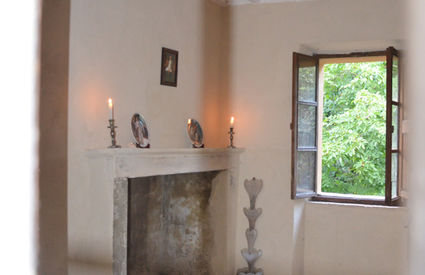Marciana
Everything is possible: word of an Emperor
A journey into the past among the cliffs and stones of Marciana ~ by Silvio Ciappi
Everything is possible: word of an Emperor
A journey into the past among the cliffs and stones of Marciana ~ by Silvio Ciappi
The island where everything smells of the sea
As a boy, I spent my best years on this island. I left to explore the world, but the world, almost coincidentally, brought me back here. Now I walk along the cliff, which leads along the cote piane, the magnificent rocks lining the coast, from the Sant’Andrea beach. In the spring, these rocks are covered by fuchsia flowers, so-called witch’s nails, rendering this place one-of-a-kind. And ahead, the sea, blue, deep. You can glimpse the formiche from the last inlet, rocky outcrops in the middle of the sea. I remember how I swam amongst the seagrass, corals and fish when I was a boy. Afterward, I would return to the rocks to look at the horizon: observing the vastness of the sea from an island means to give form to the sea, to mark its boundaries. You know yourself to merely be on loan on a land where even the stones smell of the sea and everything borders the water.
The town that watches over the sea
I return to Marciana in the evening, crossing through the Porta di Lorena, I walk the cobblestoned streets of the Medieval centre, along the stone houses of a town nestled in the mountain. High above sits the fortress built by the Pisani to observe people coming from the sea, the terrible Saracens and pirates arriving from far-away places. The magic of Marciana is in the bond between the land and sky, between the smell of forest moss and the high and noble swirling of kestrels. Walking among the silence of the trees, seeing the deep sea in the distance, one has a regal impression of being the total master of vast horizons.
Napoleon, the Hero of Heroes
I take the street heading towards the church of Santa Maria al Monte, between the holly oaks and majestic chestnut trees, the myrtle shrubs and brooms. The Sanctuary is essential. Even he, the Emperor, was here: Napoleon, the hero of heroes. It seems he loved the violets populating the forest; he gave them, surely, to Maria Walewska, his young Polish lover who, with their son, rushed to join him at the end of August, right here, in this hermitage immersed among the chestnut trees of the Marciana hills. I sit near the optical telegraph that he, the exiled Emperor, had built on the cliff Masso dell’Aquila, a magical place: from here, on the calmest of days, one can see the coast off in the distance, the black mountains of Corsica even being visible. Perhaps we’re all children of this sea, this sky and this forest, no matter if you were born from the passionate affair between a commoner and an emperor short of lovers or if you are children of a predestined love. We are distracted beings with far-away roots and I, the son of a relationship born on this island, where you learn quickly not to demand a thing of it, know the bond between the water and the wind brought by the libeccio that doesn’t break the willpower of the men of the sea. It’s easy here to immerse yourself in an ancient and unforgotten time, we little emperors without kingdoms, we with our demands and our nothingness, knowing how to begin again, always convinced that in this world, anything, everything, is possible.















